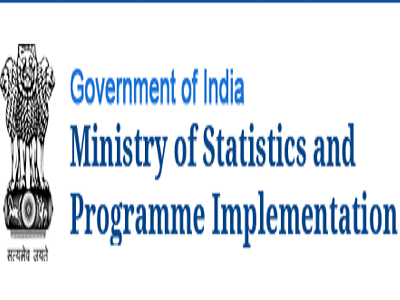- Reports have appeared in a section of media regarding the statistical reforms being undertaken in the Ministry of Statistics and Programme Implementation (MOSPI) and on the existing GDP series.
- In so far as the statistical reforms are concerned, it is important to note that system reforms are an ongoing process and are necessary for ensuring responsiveness to the changing needs of society. Over a period of time, there have been increasing demands on the statistical system for production of relevant and quality statistics. The Ministry has been accommodating these demands by optimising the available resources and use of technology. As in any system, the advent of technology necessitates reforms in statistical processes and products with an aim to synergise the existing resources so that the system remains responsive. The recent step for the merger of CSO and NSSO was aimed at leveraging the strengths of the two organisations so that it can meet the increasing demands.
- In 2018, the Cabinet had approved several new activities including the conduct of new surveys on the Annual Survey of Services Sector (for a more elaborate coverage of the services sector), Annual Survey of Unincorporated Enterprises (to get a better understanding of these enterprises, primarily in the informal sector), Time Use Survey (for assessing the time disposition of household members) and the Economic Census of all establishments. All these activities require significant financial and human resources which take time to become available. The immediate requirement of manpower can be addressed through a judicious mix of redeployment of existing manpower resources and outsourcing to professional manpower agencies. The outsourced field staff has also to be rigorously trained before deployment and thereafter effectively monitored. This model is being implemented in the Economic Census and other NSS Surveys. In the last Economic Census conducted in 2013, the State Governments were requested to arrange for staff to conduct the field work, which led to delays in finalising and releasing the results. In the ongoing Economic Census, 2019, MoSPI has partnered with the Common Service Centres (CSC) SPV to undertake the field work, and the officers of National Sample Survey (NSS), State Governments and line Ministries will be involved in close monitoring and supervision of the field work to ensure data quality and good coverage. This is the first time that the rigours of monitoring and supervision of field work exercised in NSS will be leveraged for the Economic Census so that results of better quality would be available for creation of a National Statistical Business Register. This process has been catalysed by the establishment of a unified National Statistical Office (NSO).
- In the various media reports regarding the restructuring, what has been missed out, in particular, is the fact that MoSPI is giving an increased focus on Data Quality and Assurance by repositioning the existing data processing personnel. The traditional data processing activity required transformation in light of the adoption of Computer Assisted Personal Interviewing (CAPI) and e-schedule technology in NSS. The latter facilitates better and more reliable data capture with in-built validation checks. These changes require re-skilling of the existing data processing personnel so that they can perform the data quality assurance functions. An emphasis is also being given to more use of administrative data sets that have evolved or are evolving, after ensuring their quality and usability in the statistical system.
- In so far as the credibility of data is concerned, the Government of India adopted the United Nations Fundamental Principles of Official Statistics (FPOS) in May, 2016. The Government is thus committed to ensure and secure the autonomy and independence of the statistical system to produce appropriate and reliable data by adhering to internationally agreed professional and scientific standards. In the Indian context, there have been a series of expert committees constituted in the past, which made several recommendations for improving the functioning of the national statistical system. The reforms being undertaken in MoSPI are in consonance with these principles as also the various recommendations of the National Statistical Commission (NSC). In fact, the Ministry had drafted the National Policy on Official Statistics (NPOS) and placed the same in the public domain. Based on the comments received, this policy is being redrafted.
- The order issued on 23rd May, 2019 aimed at a unified NSO, as prevailing in most other countries, that produces reliable and quality statistical products by leveraging the synergies available within MoSPI. It may also be mentioned that the Government had merged the post of Chief Statistician of India (CSI) and Secretary, MoSPI to head the NSO and order of 23 May, 2019 on restructuring has since been accordingly clarified.
- The Chairman and Members of the NSC are senior functionaries and are entrusted with the responsibility of improving the national statistical system, and the Ministry duly takes into consideration their recommendations and inputs. The status, role and functions of NSC continue as earlier (Press Release of 31 May, 2019 refers). Efforts are also on to evolve a legislative framework under which the NSC may function with independence and give holistic guidance for improving the national statistical system encompassing MoSPI, the line Ministries and the State Governments.
- In so far as the GDP series are concerned, the Ministry had issued several clarifications, which need to be duly considered for an informed and balanced view to emerge. In fact, the detailed methodology and approach for the GDP series (new series and back series), are available in the public domain. The detailed Press Release of 30th May, 2019 explained the coverage of the MCA corporate data in the GDP estimates vis-à-vis the NSS (74th Round) Technical Report on services sector with a view to address issues raised in the media on the usage of MCA data. It was explained that the NSS had been conducted this survey to understand the challenges likely to emerge when the Annual Survey of Services Sector is undertaken. The findings were analysed at the macro level and it was noted that majority of the companies had filed their statutory on-line returns with MCA and were not missed out in the GDP estimation. The issue of misclassification was also explained in that the Corporate Identification Number (CIN) has the National Industrial Classification Code embedded which is usually not updated even if a company changes its activity declared at the time of its registration. Before MoSPI undertakes the Annual Survey on Services Sector, these limitations will be duly factored and incorporated in the survey design methodology. These findings will also be used when the GDP series is revised to a new base.
- It needs to be appreciated that GDP estimation is a complex exercise and is undertaken in an ecosystem of incomplete data. This necessitates complex simulations and statistical assumptions before a methodological approach is finalised in consultation with subject experts. In fact, many of the critics of the current GDP series were involved in the various Committees that deliberated and finalised the 2011-12base revision methodology. It may be noted that the decisions of these Committees were unanimous and collective, and were arrived at after taking into consideration the data availability and methodological aspects before being recommended as the most appropriate approach. The Ministry has conventionally involved a wide range of professional experts in its deliberations and the national statistical system has immensely benefitted from their contributions. In addition, India has subscribed to the Special Data Dissemination Standard (SDDS) of the International Monetary Fund (IMF) and an Advance Release Calendar is decided for release of estimates. The IMF had raised certain issues on the usage of double deflation in the Indian GDP series and India has informed IMF that the existing data availability does not permit its application in India at present. In fact, the media reports, while citing the changes in GDP growth likely to result from adopting the double deflation, realise the varying outcomes obtained by different authors from their own distinct assumptions. It was because of such views that the Advisory Committee on National Accounts Statistics (ACNAS) had not agreed to the use of the double deflation at present stage. Moreover, double deflation is used in only a few countries that have a Producers Price Index (PPI) to deflate the inputs. MoSPI is working closely with Ministry of Commerce and Industry to have the methodology for the PPI finalised.
- Further, revision in GDP estimates occur when data coverage from administrative sources improves over time and these improvement get well documented. Consequently, the initial estimates of GDP tend to be conservative. To improve this, it would require concomitant changes in the sectoral data flows and associated regulatory framework in the data source agencies to facilitate use of more macro modelling techniques. The Ministry is also proposing to establish a National Data Warehouse on Official Statistics, where technology will be leveraged for using Big Data Analytical tools for further improving the quality of macro-economic aggregates. As all these reforms are an ongoing process, it is important that the readers and users understand and appreciate the limitations of data and the challenges in estimation. While undertaking these reforms, it is important to realise that newer data sets and survey results will invariably be used and it would be incorrect to comment that old processes were better than the new. The reforms being undertaken in MoSPI will lead to better data sets and better estimates in future, and will be duly deliberated on by the ACNAS during the Base Year revision.
- This is also to clarify on the apparent misconception that in the current GDP series the informal manufacturing sector grew at the same rate as the formal manufacturing sector measured by the Annual Survey of Industries (ASI). In fact, it is only the growth of appropriate type of enterprises in ASI (i.e. proprietary, partnership, HUF) that is used to move the bench mark estimates of the informal/unorganized manufacturing segment, and not the growth of the entire ASI. Moreover, while using the Paid-Up-Capital based scaling up of sample results, MOSPI now uses the much larger MCA database (about 7 lakh active corporates) whereas the results from a sample of only 2,500 corporates analysed by RBI were used in the earlier GDP series.
- The national statistical system works in an ecosystem of independence and autonomy in its statistical processes. Allusions to any external influence are altogether unwarranted. It has been the endeavour of the Ministry to continue educating users on the various statistical products and processes, which are essentially public goods. In this direction, the Ministry is now making available all primary data collected to the public free of cost. In so far as sharing the external secondary and administrative datasets are concerned, these are governed by various legislations and the researchers may approach the concerned custodian source agencies for more granular data.





